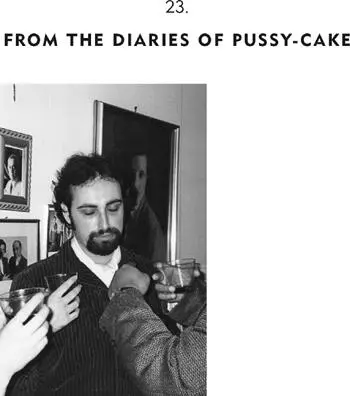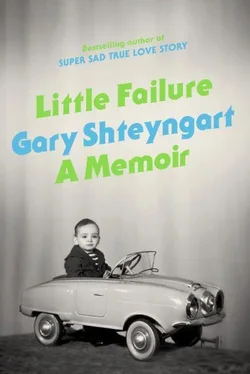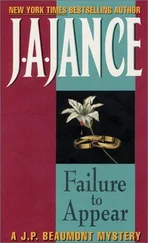The hostile Russian is on his way home. He is cocky and still coated with praise from the Oberlin College creative writing department. He has just been treated to a McDonald’s lunch by his parents, the last such treat he will know in years. More tragic still, he cannot even begin to fathom the possibility of failure.
23. From the Diaries of Pussy-Cake

The author at a party on his first date with Pamela Sanders. He is so drunk he can barely stand. Notice the desperate white cravat around his neck. Poor author.
LET’S GO BACK TO THE BEGINNING. To the Strand Book Annex in Manhattan. To the panic attack. To the book. I am standing there once again in the Fulton Street Strand, holding St. Petersburg: Architecture of the Tsars, the baroque blue hues of the Smolny Convent Cathedral practically jumping off the cover. I am opening the book, for the first time, to page 90. I am turning to that page. I am turning to that page again. The thick page is turning in my hand . What happened at the Chesme Church more than twenty years ago?
When Jonathan and I used to play our Zork computer game after Hebrew school, there was a simple typed command— I— that stood for “inventory.” It would tell you how many swords and flasks and assorted magical loot you, the player, possessed at the moment. Curiously, a “Personality Inventory” or “Self-Report Inventory,” with its Anxiety and Repression and Ego Strength Scales, is also used by psychologists to evaluate the mental conditions of a test subject. I am just saying.
If I were to type I in 1997, at the Strand Book Annex in Lower Manhattan, what inventory would appear?
1. There would be “Me.” Pony tail tied back with a girlish scrunchie. Receding hairline out in front. A heavy rotation of dead ficus trees. Five thousand dollars in debt to Chase Visa. A Little Failure of the first order.
2. There would be my new studio apartment in babylicious Park Slope. Three hundred square feet looking out onto a dank courtyard, the kitchen overrun with roaches of all sizes and colors, a gift from the old woman slowly, eternally, dying in the apartment upstairs. No baby.
3. There is my novel, which I’ve finished but which I also hate. At one point, I decide to throw out the five hundred pages that comprise the last draft. A good Oberlin graduate, I recycle the whole mess first, but, broke and indebted, I use the cheapest recycling bags. I return from work to find out that my recycling bags have burst, and my entire novel is scattered like a blizzard across Seventh Avenue, the Champs-Élysées of Park Slope, my name crowning every page, my friends chuckling at my random prose. “Who’s this Vladimir ?”
4. My friend, adversary, and role model, John. The key to my future sanity.
The problem with Zork’s Inventory function is that it never really tells you what you don’t have. What you want. What you need still.
I no longer have J.Z. She is in North Carolina. Her boyfriend is a drummer who lives in a van. After almost three years of having a companion, someone to drive me to the hospital for my last asthma attack, someone to split a soggy tuna sub with at the Student Union’s snack bar, I am alone.
My grandma Polya. Her death is drawn out and cruel. I follow her to different hospitals, Manhattan’s Mount Sinai and a lesser one near her apartment in Queens, but it is hard to sit at her bedside, next to the green-hued monitors that chart her failing grasp on the world. She is dying in parts, as most of us do. Skeins of hard-won adulthood peeling off. The kindness is gone from her face, the kindness she once shared only with me, and what is left is a contorted Soviet grimace. I don’t know what to do. I give her strawberries to eat. I watch my father howl in anger and sadness. I kiss her forehead at the funeral parlor, and it feels cold and hard like a brick, inanimate. So much for George Anderson’s We Don’t Die .
I watch her body being driven to a Long Island cemetery in a van, not a real hearse, and wish I had the money to upgrade her final voyage. The body of the one woman who didn’t consider me a Little Failure or a Snotty or a weakling is covered with dirt, handfuls of which we have all thrown on top of her with our hands, as is Jewish custom.
And the final thing I don’t have. St. Petersburg: Architecture of the Tsars . After my panic attack is over, I put the book down and walk right out of the Strand Book Annex. Walk right out toward a fresh lunchtime vodka and tonic at the Blarney Stone. No Chesme Church for me. No helicopter either.
But four dry years after I’ve kissed J.Z. a final goodbye, there will be someone new in my life.
Someone, as they say, special.

Her name is Pamela Sanders. *We hook up at a social agency conference about the resettlement of Hmong refugees or something of the sort. She is a serious-minded Program Development Specialist who works at the nonprofit I just got laid off from. I am writing grant proposals for a Lower East Side settlement house, my new employ. My title is Senior Grant Writer, but I am sometimes referred to as Señor Grant Writer, and people tell me I am not a team player.
After four lonely years without J.Z., I am primed to like anybody who will touch me, but there’s more to Pamela than that helpful distinction. Let me start with how she looks. She has two bodies. An aristocratic upper half that my Petersburg ancestry would probably have termed “cultured”—diminutive shoulders that fit into the hollows of my palms, a well-proportioned Anglo face (here the straight stalk of a nose, there a minimalist attempt at ears), the whole pleasant affair crowned by twenty inches of rich, flaxen hair. But by candlelight a second body reveals itself, as loamy and real as our country’s interior: strong, strong legs that conquer the hills of Brooklyn where she lives (Cobble and Boerum Hills, to be exact) with ease; hips wide enough to give birth to the tribe of Joseph; a backside in which one could lose oneself, a scalloped, ridged, white-pink ode to the uncomplicated side of lust. And when she propels this second half out of a pair of tight jeans, I am torn between the biological and the refined — do I grab the ass or kiss the nubbin of a nose, do I go for the part of her golden crown or plunge between the obvious promise of her thighs? After knowing her a few weeks, after falling thoroughly in love, I am, I think to myself, caught in a love triangle between me and these two Pamelas. And then the love triangle gets really complicated. She tells me she has another boyfriend.
He is, let’s say, Kevin, a thirty-year-old poet who lives with his parents in New Jersey, drops dubious verses about the Greek gods, and weekly crashes at my sweetheart’s house in Brooklyn. They have been together for the better part of a decade, the phone bill is in his name, and the answering machine informs the caller that she has reached “the home of Kevin.” In photographs he looks like a Greek god himself, a dark, hipster one, assigned by Zeus to some minor precinct, say, Trendios the god of Williamsburg. If the outgoing phone message is any indication, he speaks with a fake aristocratic accent. He also enjoys working with wood. Despite this inclination, he has not had sex with my baby doll for some time.
That is my job. By this point, I am living in a tenement apartment off Delancey Street on the Lower East Side, measuring maybe ten feet by twenty feet (fewer tiny roaches than in my Brooklyn digs, more giant flying water bugs), next to another studio that is home to a couple so loud one could graph their hourly orgasms in a series of parabolas and bell curves. Pamela gets competitive with the neighbors. She hollers during lovemaking as if my tenement building is on fire (frequently it is), urging me to do the same. “Let’s show them where the real fun is!” she’ll say. When it’s over, she calls her other boyfriend, makes sure his parents know that, yes, she is still coming over to New Jersey for a weekend of family fun, her tone quiet, familial, obedient.
Читать дальше














